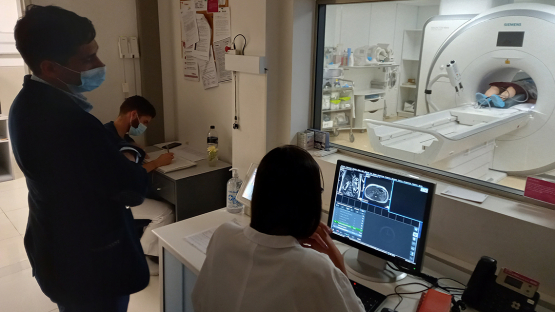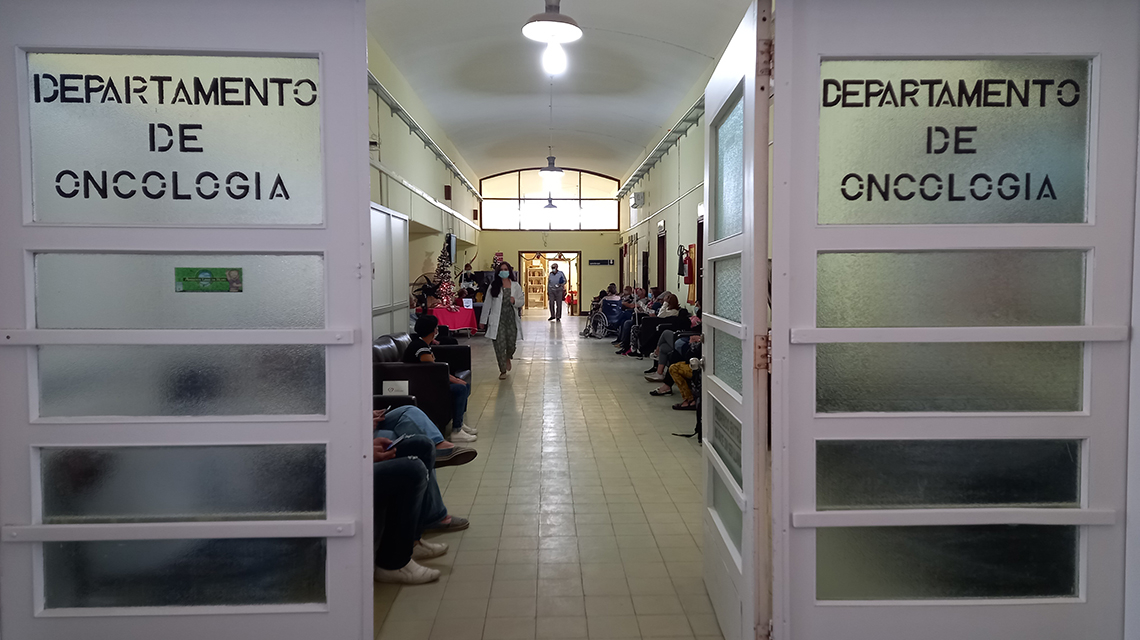Experts rolled up their sleeves in Uruguay in the final weeks of 2021 as they assessed the country’s cancer control system and worked towards finding solutions to strengthen cancer control capacities and lower mortality rates. Together with the Ministry of Public Health and 20 national experts, the IAEA, the World Health Organization (WHO) and the International Agency for Research on Cancer (IARC) brought in an international team of specialists to focus on how to tackle these rates, which remain high despite the medical expertise available in the country and the technological investments made in recent years.
Over five days at the end of December, an imPACT Review team of international experts met with almost 100 national stakeholders, including oncology physicians, nursing staff, hospital and laboratory technicians and public administration officials. They visited seven public and nine private cancer facilities in both urban and rural parts of the country, as part of the review.
The imPACT team also travelled to the department of Florida (90 km north of Montevideo) to visit three of the main cancer facilities in rural Uruguay. The visit allowed experts to consolidate an analysis of the urban and rural realities, and to develop a series of recommendations to strengthen access to cancer control services for the entire population.
Building on virtual meetings and workshops that started in September, the experts held extensive discussions on Uruguay’s capabilities and needs in human resources, cancer detection, diagnostic and treatment technologies as well as infrastructure.
“Receiving this imPACT mission is a great opportunity for Uruguay, as much for the medical staff as for the patients and us in the Ministry,” said Daniel Salinas, Minister of Public Health. “This joint mission provides us with an unbiased and transparent analysis of the current situation of our cancer control system, allowing us to develop solutions that aim to reach the highest international standards while respecting the specificities of our country.”
The four most frequent types of cancer in Uruguay are breast, prostate, colorectal and lung cancer, similarly to other high-income countries. These four cancers are responsible for half of the 8,000 annual cancer deaths in the country of 3.5 million every year. According to the National Cancer Registry, more than 16,000 new cases are registered each year.





